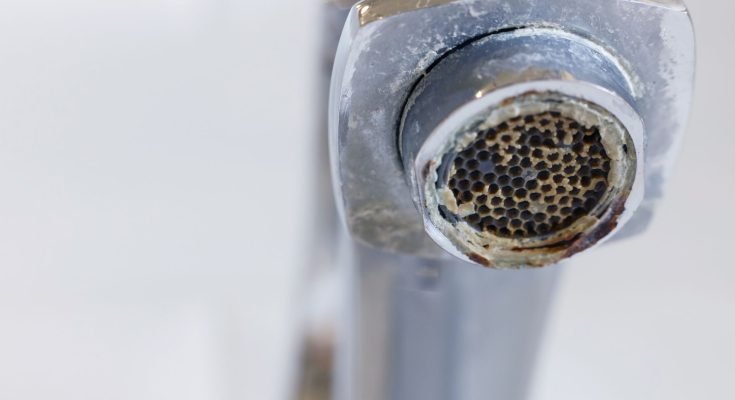Hard water can negatively affect your home’s plumbing system, leading to various issues that may not cause headaches until later. Understanding the consequences of hard water accumulation helps homeowners take proactive steps to ensure the longevity of their pipes and appliances. Let’s explore how hard water impacts plumbing, detailing the problems it causes so homeowners can mitigate its effects.
Scale Buildup
Hard water contains high levels of minerals like calcium and magnesium that accumulate on pipes, forming a hard, chalky substance known as scale. These scale deposits build with time, constricting water flow and increasing pressure in your pipes. You might notice this as a sign of hard water when your taps and showerheads produce less water or if you see white buildup around your faucets.
Corroded Pipes
The minerals in hard water react with metal pipes and slowly wear them away. Corrosion weakens pipes, leading to leaks or bursts that can cause significant damage to your home. Hard water can also contribute to corrosion on your appliances, fixtures, drains, and valves. Detecting corrosion early is crucial for maintaining the integrity of your plumbing system.
Reduced Appliance Lifespan
Hard water damages appliances like dishwashers, washing machines, water heaters, and others that use water. Scale buildup inside these machines affects efficiency and increases energy consumption. Appliances may require more frequent repairs or replacements. Consider investing in appliances designed to handle hard water conditions and conduct regular maintenance to maximize efficiency.
Decreased Water Pressure
Low water pressure can be frustrating when completing daily tasks and chores. One overlooked cause of reduced pressure is mineral deposits from hard water. The minerals create scale buildup, which narrows the pathways for water, restricting flow and leading to a noticeable pressure reduction. Addressing hard water problems can improve water pressure and enhance your plumbing system’s efficiency.
Poor Water Quality
Lastly, hard water affects water quality in various ways. The water that comes out of your taps can have an unpleasant taste and smell, which makes drinking it less enjoyable and diminishes the experience of using water in daily activities. Additionally, hard water can leave unsightly mineral stains on dishes, glasses, and other surfaces, thus requiring extra effort to clean. While hard water is not harmful to health, its effects can be a considerable nuisance for homeowners seeking a pleasant, clean living environment.
Understanding the impact of hard water on plumbing can help homeowners take the necessary steps to protect their properties. Implementing regular maintenance, using descaling agents, and installing whole-home water filter systems are effective preventative measures for hard water issues in your home. Proactively facing these issues creates a more efficient and reliable home plumbing system.




